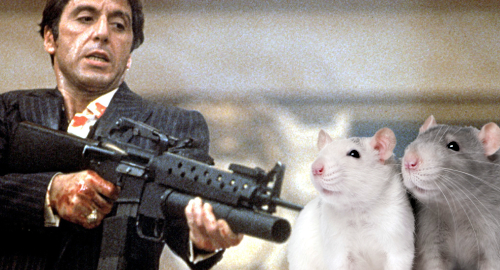South Korean researchers hope their experiments with administering cocaine to rats will help lead to more effective treatments for problem gamblers.
A new study by researchers at Seoul’s Yonsei Medical University have come to the not-at-all-utterly-predictable-well-in-advance conclusion that using cocaine aggravates poor decision-making.
The researchers wanted more insight into how the interaction of trait and environmental factors affected risk preference in animals, in this case, everyone’s favorite gambling guinea pigs, rats. The study involved introducing rats to a touch-screen chamber featuring four different light signals that produced different reward and punishment outcomes.
Once the rats had been categorized as either risk-averse or risk-seeking, the scientists injected some of them with cocaine, then re-tested their reactions while “cocaine-challenged.” (I considered myself cocaine-challenged once, after my entrepreneurial friend Eric got busted, but I suspect that’s not how the researchers define the term.)
